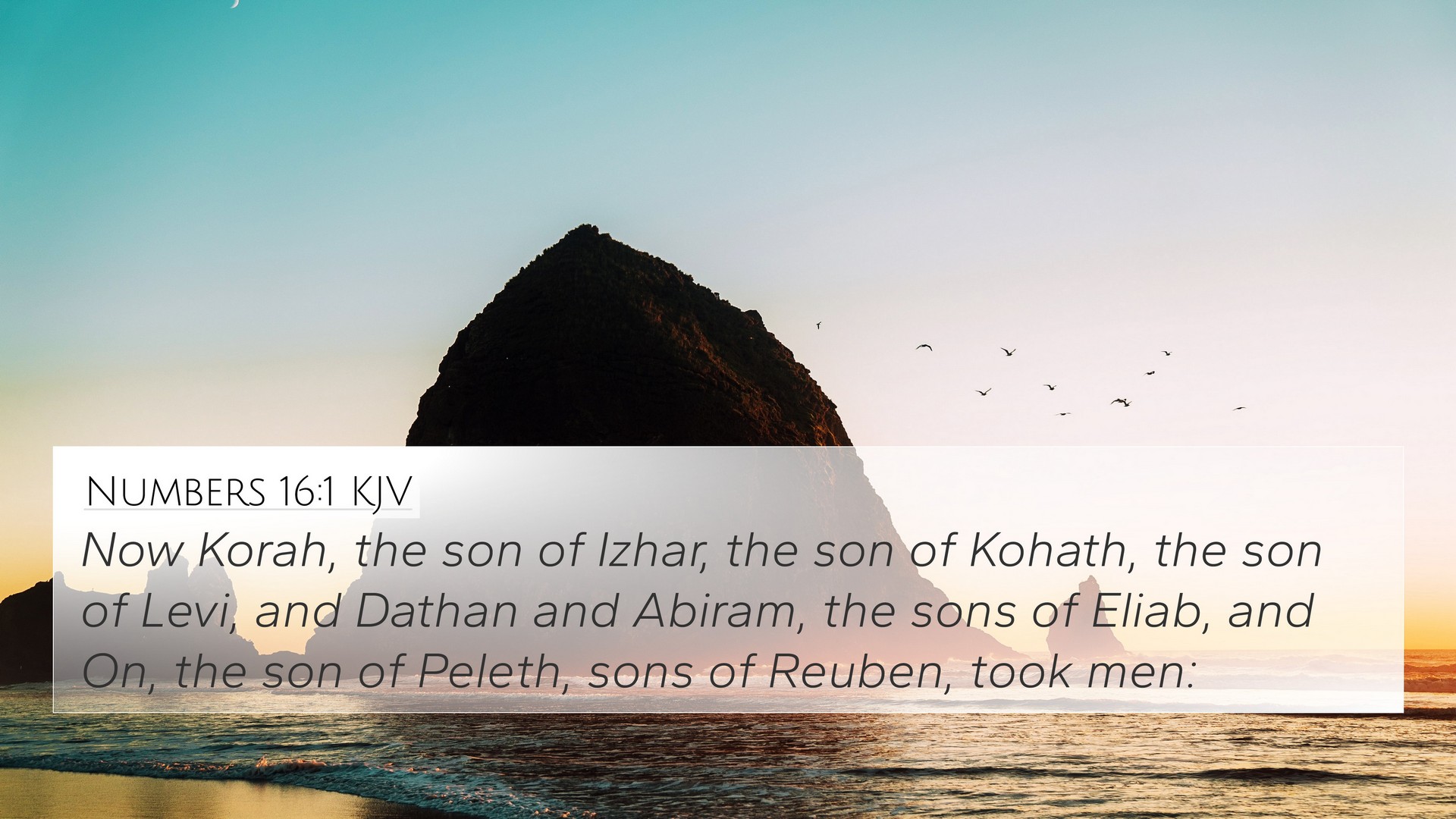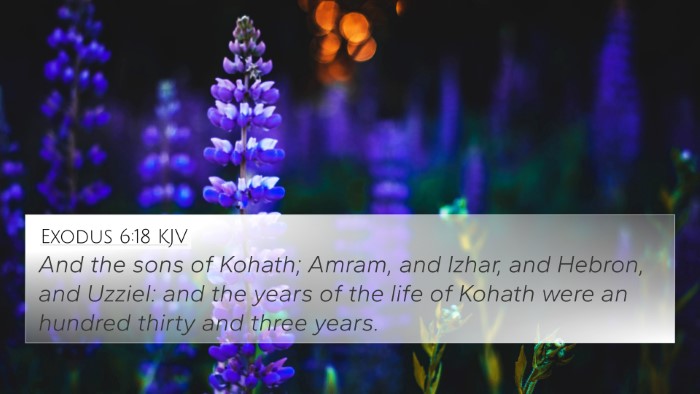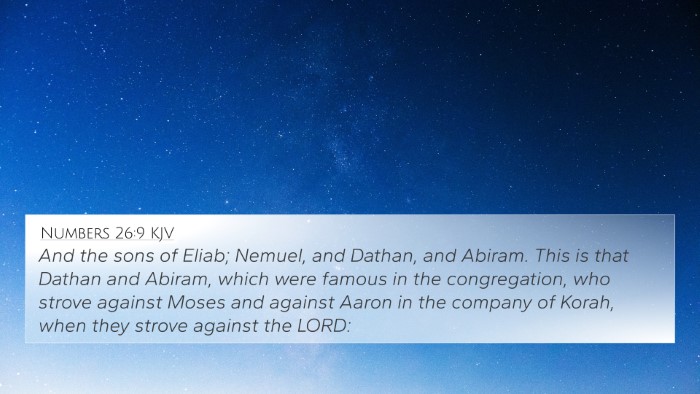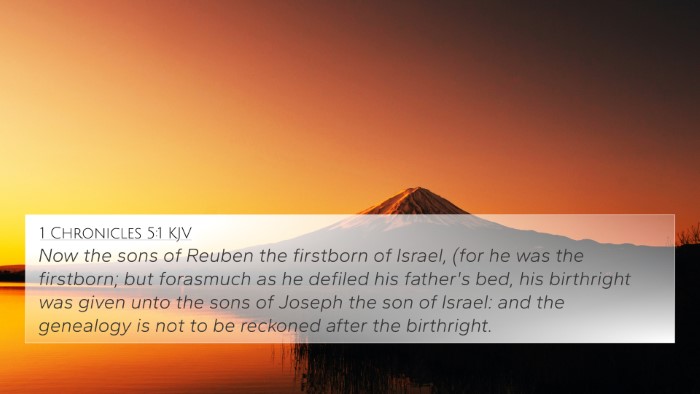Understanding Numbers 16:1
Numbers 16:1 introduces a significant rebellion against Moses’ authority led by Korah and his followers. This act illustrates themes of leadership, divine authority, and the consequences of rebellion against God's appointed leaders.
Summary of Numbers 16:1
In this verse, we find Korah, Dathan, Abiram, and On son of Peleth challenging the leadership of Moses and Aaron. Their insurrection indicates a deeper dissatisfaction with God's order and raises questions about authority and community within Israel.
Commentary Insights
Matthew Henry's Commentary
Matthew Henry emphasizes the folly of Korah's rebellion, noting that it stemmed from pride and ambition. Henry explains that this group sought to elevate themselves above the established leaders of Israel, demonstrating a lack of respect for divine order.
Albert Barnes' Commentary
Albert Barnes highlights Korah's lineage as a Levite, which signifies a position of responsibility but also brings accountability. He warns of the dangers associated with jealousy and the desire for power, which can lead to significant communal strife.
Adam Clarke's Commentary
Adam Clarke points out that the rebellion was not merely political but a challenge to God’s selection of Moses and Aaron. Clarke suggests that the jealousy from those with noble backgrounds often leads to divisions within communities, and in this case, Korah's actions ultimately led to disastrous consequences.
Cross References
- Exodus 3:10: God appoints Moses to lead Israel, highlighting the importance of divine authority.
- Exodus 16:3: The Israelites' murmuring against Moses, showcasing a pattern of discontent in the wilderness.
- Leviticus 10:1-2: The story of Nadab and Abihu demonstrates the severity of disobedience and unauthorized actions before God.
- Deuteronomy 17:12: The call for obedience to the decisions of those in authority, reinforcing the seriousness of following God's ordained leadership.
- 1 Corinthians 10:10: The New Testament warns against the rebellion of the Israelites, drawing lessons for contemporary believers.
- Numbers 26:9-10: A reminder of the division and consequences that arose from Korah's actions, leading to a significant loss of life.
- Hebrews 13:17: Encouragement to submit to church leaders, paralleling the necessity of respecting God-given authority.
Thematic Connections
This verse and its context invoke several critical themes in the Bible:
- Authority and Rebellion: Korah’s rebellion reflects humanity’s struggle with authority, which is a recurring theme throughout scripture.
- Divine Judgment: The swift judgment on Korah and his peers showcases God’s response to disobedience.
- Community and Leadership: The dynamics of leadership and community trust are examined through this event, as it addresses the necessity of supporting God's appointed leaders.
Implications for Today
The narrative of Numbers 16:1 serves as a cautionary tale regarding the importance of respecting divine authority and understanding our roles within spiritual communities. It challenges believers to consider how ambition and jealousy can disrupt unity and lead to severe consequences.
Conclusion
Overall, Numbers 16:1, when placed in the broader scriptural context, offers profound insights into the nature of authority, divine order, and the dangers inherent in rebellion. By understanding its implications, believers can better navigate their own spiritual journeys and relationships within the church.
Search for Related Verses
For those interested in Bible verse cross-references, consider exploring the connections between Numbers 16 and other biblical texts to enrich your understanding of authority and divine order in scripture.










